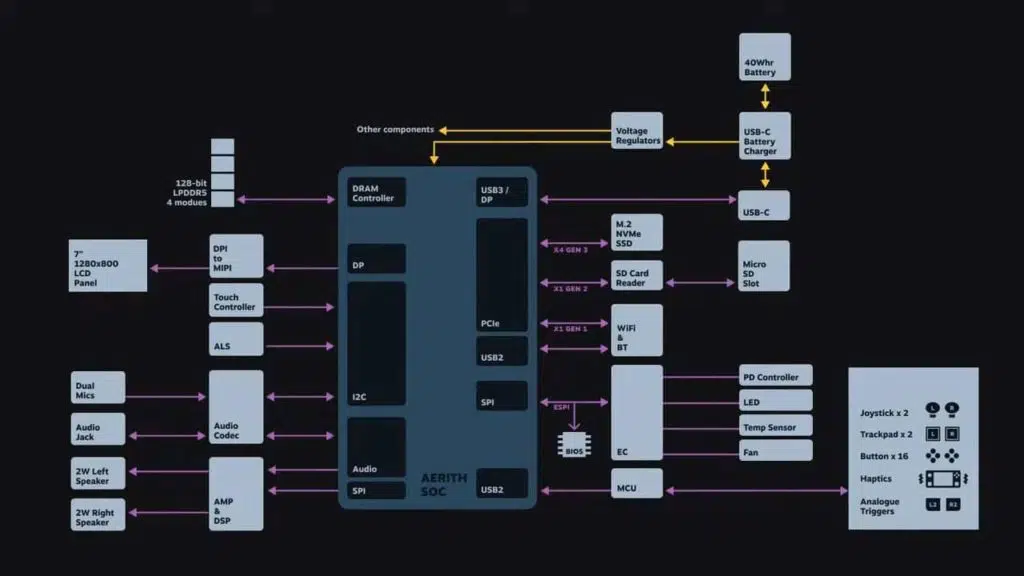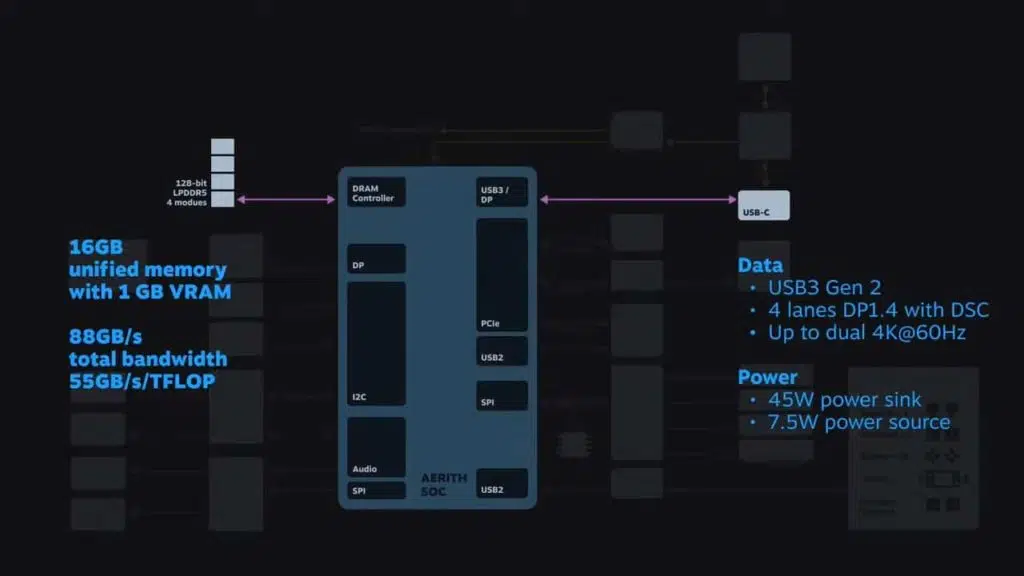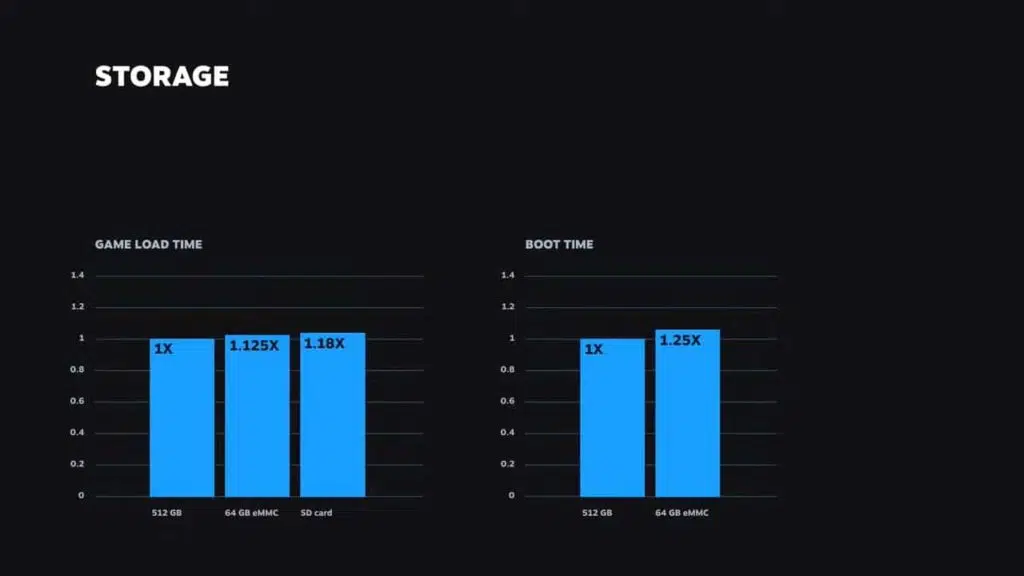
Valve has shared a copy of a recent live stream that provides quite a bit of technical insight into its new handheld gaming system. Among those is the name of the SoC; Valve’s engineers are apparently Final Fantasy VII fans that decided to name it after flower girl Aerith. They also confirmed that the Steam Deck will be getting a global frame rate limiter for reducing power usage and extending battery life, as well as a future OS update that could enable AMD’s FidelityFX Super Resolution in titles that don’t natively support the spatial upscaling technology.
Valve on the Steam Deck’s efficiency:
What’s truly novel about our processor is that it was designed from the ground up to be optimized for the 4- to 15-watt power envelope available to us in this form factor. […] The one major takeaway that I’d like to leave you with today is that the level of performance per watt we were able to achieve with this processor would simply not have been possible using any off-the-shelf processor that exists today.
Valve on the benefits of using LPDDR5 memory:
Steam Deck is going to be one of the first devices to utilize LP5, and we’ve went with LP5 for two major reasons. First one is memory bandwidth; our APU runs at 128-bit-wide memory bus at 5.5 GHz. This combines to a total of 88 gigabytes per second worth of bandwidth, which if you compare on a per teraflop basis, actually exceeds a lot of dedicated desktop-grade GPUs. The other advantage to LP5 is power efficiency; LP5 offers a lot of great power-saving features […]
Reservations for the Steam Deck remain open despite Valve’s inability to meet its original launch date amid component shortages. Current orders will not ship until after Q2 2022.
Source: Valve



